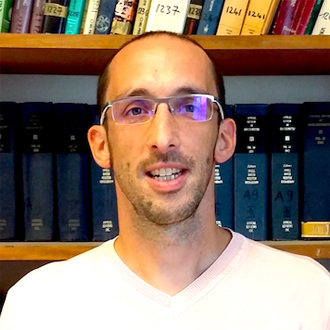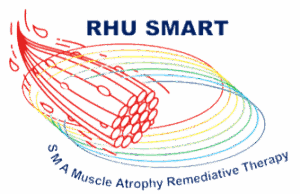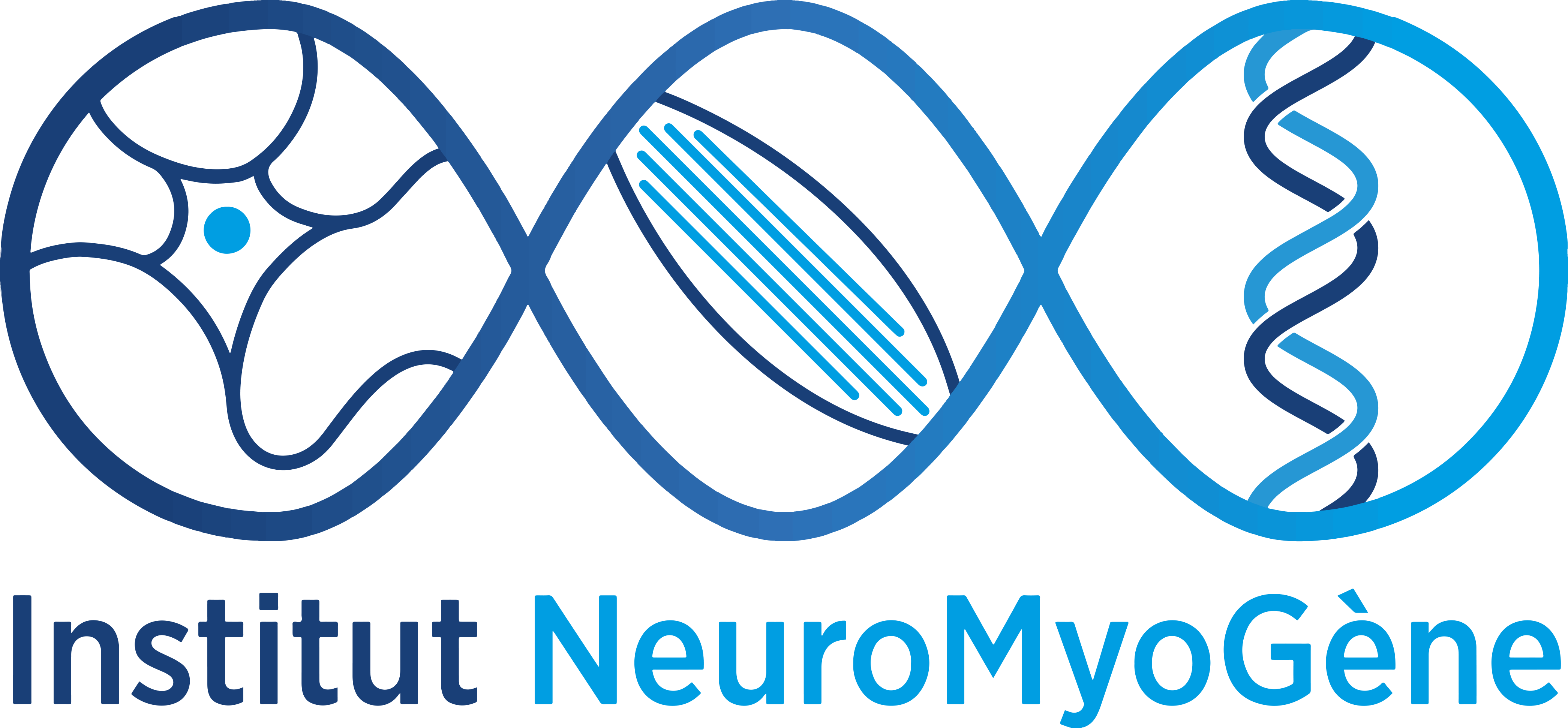Mechanisms controlling muscle maintenance and regeneration, and their role in the development of muscle diseases are not yet fully known. Metabolism is a key factor exerting a tight coordination between organelles, cell types, and tissues to support muscle homeostasis. Our team aims to identify the role of metabolic cross-talk in striated muscle maintenance in physiological and pathophysiological conditions with a multi-scale approach; encompassing 1) the cellular level, addressing the cross-talk between (metabolic) organelles within and between muscle cells; 2) the organ level, addressing the cross-talk between cells via alterations in local (metabolic) microenvironment; and 3) the organism level, addressing the cross-talk between different organ systems via alterations in the systemic (metabolic) environment.

TEAM
- Rémi MOUNIER
SENIOR RESEARCHER, CNRS - Rawan ALTUJJAR
RESEARCH ASSISTANT, UCBL - Lucie ANCEL
POST-DOC - Elise BELAIDI
PROFESSOR, UCBL - Sabrina BEN LARBI
RESEARCH ASSISTANT, UCBL - Ioanna BERIATOU
PhD STUDENT - Laureline BOUTONNET
PhD STUDENT - Léa CHAINTREUIL
MSC STUDENT - Carole DABADIE
PhD STUDENT - Léo FRATELLO
MSC STUDENT - Luca GARCIA
RESEARCH ASSISTANT, UCBL - Lola GRAIZEAU
PhD STUDENT - Anita KNEPPERS
RESEARCHER, CNRS - Lola LESSARD
MD/PhD - Nazanine MODJTAHEDI
SENIOR RESEARCHER, CNRS - Ulysse PORRA
MSC STUDENT - Aline SANTIN
RESEARCH ASSISTANT, UCBL - Audrey SAUGUES
PhD STUDENT
Axis 1: Metabolic regulations of adult muscle stem cell fate (PI: R. Mounier)
We and others have previously demonstrated a change in metabolism during the muscle stem cell fate. This may serve to support the production of metabolites required for state-specific cell functions (such as proliferation), but may also directly regulate the muscle stem cell fate. We take an unbiased approach to profile the proteomic and metabolomic signatures of mouse muscle stem cells during different phases of skeletal muscle regeneration after a ‘physiological’ lesion induced by eccentric muscle contractions. We compare these signatures with those from muscle stem cells of dystrophic mouse muscles, which display a co-presence of stem cells at different states of their fate due to ongoing muscle injury and regeneration.
Metabolic adaptations during muscle stem cell fate are in part driven by the key energy sensor AMP-activated protein kinase (AMPK) and the kinases activated by LKB1 (i.e., the ‘AMPK-related kinases’). Our team has previously demonstrated differential cell fate adaptations in the absence of AMPKα1 and AMPKα2. We now further characterize the role of the AMPK-related kinase family by studying NUAK1 in the fate of the adult muscle stem cell during regeneration using complementary experimental systems in vivo (mouse models), ex vivo (isolated myofibers) and in vitro (primary muscle stem cell cultures). Specifically, we focus on the mechanism by which NUAK1 regulates cell fate via the modulation of lipid metabolism.
To address the role of AMPK and the AMPK-related kinase family in the context of asynchronous skeletal muscle regeneration, we use the dystrophic mouse model. Muscle metabolic adaptations are prevalent in patients with Duchenne Muscular Dystrophy (DMD). We aim to study the impact of these muscle metabolic alterations on muscle stem cell fate in a dystrophic mouse model using in vivo, ex vivo and in vitro approaches. Using biochemical analyses of the AMPK-associated pathways, and using cell functional and imaging-based assessments mitochondrial function and cell fate, we elaborate the role and therapeutic potential of metabolism and metabolic plasticity in DMD pathology.
Similarly, we study the role and therapeutic potential of metabolism and metabolic plasticity in Type I Myotonic Dystrophy (DM1).
Axis 2: A single nucleus approach solving the role of MuSCs in myofiber rejuvenation (PI: R. Mounier & A. Kneppers)
The rejuvenation effect of senescent cell removal from aged skeletal muscle can be partially attributed to beneficial effects on the skeletal muscle stem cells (MuSCs), which support myofiber homeostasis through fusion. To date it remains unknown to which cellular processes MuSCs contribute in order to promote myofiber homeostasis and rejuvenation. We address the role of the addition of MuSC-derived nuclei and mitochondria, and their associated DNA (mtDNA) in young and aged mice by combining cell and organelle tracing with single nucleus RNA sequencing (snRNAseq) and Spatial Transcriptomics (ST). Thereby, we will characterize the transcriptional contribution of ‘new’ MuSC-derived nuclei and mitochondria to adult myofibers; unravel the causal link between the transcriptional contribution of MuSCs to adult myofibers and the rate of MuSC fusion to myofibers; assess the contribution of ‘new’ MuSC-derived nuclei and mitochondria to the reversal of senescence-associated transcriptional alterations upon skeletal muscle aging.
Axis 3: Resistance of skeletal muscle to the metastatic process (PI: R. Mounier, A. Kneppers & E. Belaidi)
Metastasis is the leading cause of death from cancer. Most cancers metastasize to organs such as the lung, liver or brain, but striated muscle appears resistant to metastasis. We hypothesize that the contractile activity of muscle generates a microenvironment that is unfavorable for the terminal stages of the metastatic cascade (i.e., extravasation and colonization). Indeed, striated muscle cells are highly metabolically active, and reside in a hypoxic environment – two potentially anti-metastatic properties that are emphasized upon contraction. We explore in vitro the impact of microenvironment modifications induced by striated muscle contraction on resistance to the metastatic process. First, using a newly developed ex vivo model that combines the induction of contraction in isolated striated skeletal muscle with a cell culture setup in hypoxic conditions, mimicking the muscle environment. Next, using ex vivo myocardial contraction in both physiological and pathological conditions. We measure the contraction-induced proteome and metabolome of the striated muscle to unravel the factors that can halt the metastatic process.
SELECTED PUBLICATIONS
- Immune aging impairs muscle regeneration via macrophage-derived anti-oxidant selenoprotein P. Hoang D#. Bouvière J#. Galvis J#. Moullé P. Mercier O. Migliavacca E. Ghosh A. Juban G. Lion S. Stuelsatz P. Le Grand F. Feige J*. Mounier R*. Chazaud B*. Embo Rep 2025 Aug;26(16):4153-4179
- Nanoparticle delivery of AMPK activator 991 prevents its toxicity and improves muscle homeostasis in Duchenne muscular dystrophy. Andreana I. Ghosh A. Repellin M. Kneppers A. Ben Larbi S. Tifni F. Fessard A. Martin M. Sidi-Boumedine J. Kryza D. Stella B. Arpicco S. Bordes C. Chevalier Y. Gondin J. Chazaud B*. Mounier R*. Lollo G*. Juban G*. Mol Ther Methods Clin Dev. 2025 Aug 14;33(3):101564
- AMPKα2 is a skeletal muscle stem cell intrinsic regulator of myonuclear accretion. Kneppers A. Ben Larbi S. Theret M. Gsaier L. Saugues A. Dabadie C. Ferry A. Rhein P. Gondin J. Sakamoto K. Mounier R. iScience 2023 26(12):108343
- AMPKα1 is essential for Glucocorticoid Receptor triggered anti-inflammatory macrophage activation. Caratti G. Desgeorges T. Juban G. Koenen M. Kozak B. Théret M. Chazaud B. Tuckermann JP. Mounier R. EMBO Rep 2023 24(2):e55363
- Annexin A1 drives macrophage skewing to accelerate muscle regeneration through AMPK activation. McArthur S#. Juban G#. Gobbetti T#. Desgeorges T. Theret M. Gondin J. Toller-Kawahisa JE. Reutelingsperger CP. Chazaud B. Perretti M*. Mounier R*. J Clin Invest 2020 130:1156-1167
- Macrophage-derived superoxide production and antioxidant response following skeletal muscle injury. Le Moal E#. Juban G#. Bernard AS. Varga T. Policar C. Chazaud B. Mounier R. Free Radic Biol Med 2018 120, 33-40
- AMPKα1-LDH pathway regulates muscle stem cell self-renewal by controlling metabolic homeostasis. Theret M. Gsaier L. Schaffer B. Juban G. Ben Larbi S. Weiss-Gayet M. Bultot L. Caterina C. Foretz M. Desplanches D. Sanz P. Zang Z. Yang L. Vial G. Viollet B. Sakamoto K. Brunet A. Chazaud B. Mounier R. EMBO J 2017 36: 1946-1962
- Myeloid HIFs are dispensable for resolution of inflammation during skeletal muscle regeneration. Gondin J, Theret M, Duhamel G, Pegan K, Mathieu JR, Peyssonnaux C, Cuvellier S, Latroche C, Chazaud B, Bendahan D, Mounier R. J Immunol 2015, 194:3389-3399
FUNDING
- Agence Nationale de la Recherche
- Agir pour les Maladies Chroniques
- Association Française contre les Myopathies
- Center of Research in Oncopediatrics – South-ROCK
- CNRS
- Fédération Française de Cardiologie
- Fondation Maladies Rares
- Fondation pour la Recherche Médicale
- Graduate Initiative MuSkLE
- Institut National du Cancer
- INSERM
- Ligue Contre le Cancer
- Marie Skłodowska Curie Actions
- PHENOMIN
- RHU SMART
- Société Française Cancers Enfant
- Société Française de Myologie
- Université Claude Bernard Lyon 1









![]()






Adresse
Institut NeuroMyoGène
UCBL – CNRS UMR 5261 – INSERM U1314
Faculté de Médecine et de Pharmacie – 3ème étage – Aile AH
8 avenue Rockefeller
69008 Lyon
France

